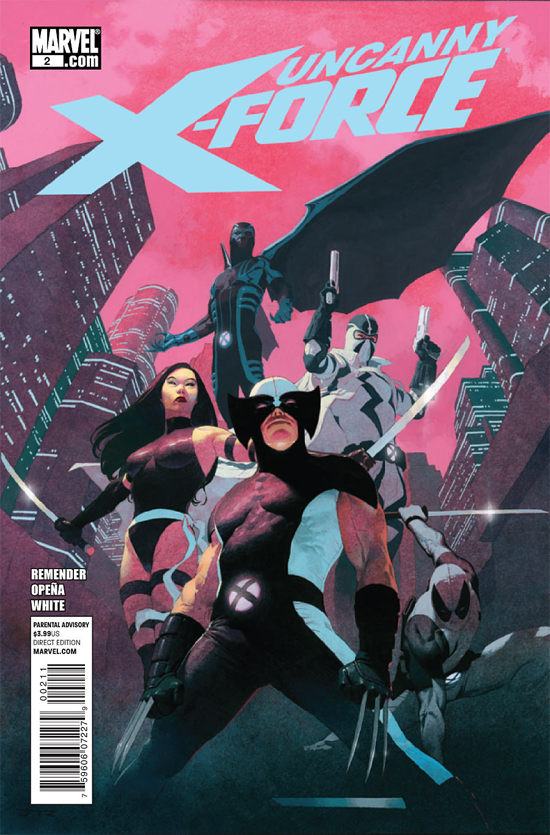 For many years now the trend in Hollywood has been to make movies based on awesome books. I'm not sure what started the whole thing, but these days it seems to show no sign of slowing down. It's pretty easy to understand the trend. Authors who get books turned into movies, TV shows, lunchboxes, and shirts at Hot Topic seem to own nicer houses, and Hollywood writers can get paid a lot without...you know...writing. It's really a win-win situation. At the same time, those of us in the general public, can probably think of one or two (or fifty) terrible movies that were based on really great books. Whenever I hear about one of my beloved novels or comics being turned into a movie or TV show, my first reaction is, "Please God, don't let them ruin it!" Unfortunately, those prayers are not always answered.
For many years now the trend in Hollywood has been to make movies based on awesome books. I'm not sure what started the whole thing, but these days it seems to show no sign of slowing down. It's pretty easy to understand the trend. Authors who get books turned into movies, TV shows, lunchboxes, and shirts at Hot Topic seem to own nicer houses, and Hollywood writers can get paid a lot without...you know...writing. It's really a win-win situation. At the same time, those of us in the general public, can probably think of one or two (or fifty) terrible movies that were based on really great books. Whenever I hear about one of my beloved novels or comics being turned into a movie or TV show, my first reaction is, "Please God, don't let them ruin it!" Unfortunately, those prayers are not always answered.On the other hand, there is something very rewarding about discovering an author based on a movie you loved. Working in reverse order usually has much better results. So when I discovered that one of my favorite movies, "Blade Runner," was actually based on a book, I had no choice but to hunt down a copy and read it immediately.
The story follows a bounty hunter named Rick Deckard, through a single day as he hunts down eight androids who have escaped Mars and taken human identities on Earth. The androids are all of a sophisticated new model called Nexus 6, which makes them much more "human" than previous models. As Deckard hunts them down, and comes face-to-face with each of them, he is confronted with a moral dilemma, and specific questions about what it means to be alive. The androids desire to live. To be as close to human as they can. To enjoy life, and thrive on Earth. And yet Deckard is hired to wipe them out. At first he regards them as mere objects of human creation. A computer that has stopped functioning as it's designer intended. But as he goes on, he interacts with them, talks to them, hears their stories, and realizes that they might be more than just objects. Can he continue to destroy them when he cannot define what it is that makes us alive?
Apart from the plot's central story are a few side journeys that really add a lot of depth to the book. First is the story of Deckard and his wife. Both are stuck in lives that are devoid of any meaning. In fact, much of the Earth is in the same situation. Humans rely on machines to "inject" them with emotions, often unable to feel anything without the machine's help. They are lifeless creatures, reliant on man-made inventions to make them feel alive again.
The second subplot concerns the ownership of pets. Earth has become a radioactive wasteland after a huge war. Many animals have become completely, or are on the verge of being extinct. Because of this, animals are a prized possession. A status symbol, and coveted asset. The less wealthy are dependent on electronic versions of animals, to allow them similar social standing, and a sense of accomplishment. Deckard owns an electric sheep. Nobody except he and his wife know that it is electric. His status in intact in society, and yet he constantly struggles with knowing that his sheep is not genuine. He cannot appreciate it, because it is metal on the inside. He despises its falseness, constantly obsessing over the possibility of one day having a genuine animal.
"Do Androids Dream of Electric Sheep" is a lot like the movie "Blade Runner," and yet so different in many ways. If you have seen the movie, you will immediately recognize many of the characters and plot points, but after that many of the similarities disappear. Phillip K. Dick's book is a lot less about sci-fi action, and more about deep philosophical questions. It forces you to ask, "What does it mean to be alive?", and yet leaves the question unanswered. To me there is something very satisfying about a book that is able to take you through a fantastic journey, simultaneously making you think about life's great questions. "Androids" is able to do just that, all without feeling forced or preachy. For all the terrible movie adaptations out there, it only takes one like "Blade Runner" to make me hope the trend continues for a long, long time.


